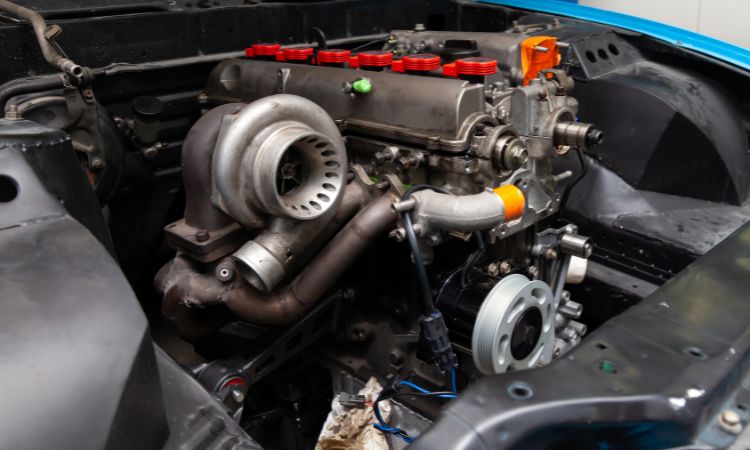The global automotive electric turbocharger market size is experiencing a significant transformation, with experts predicting a robust growth rate of 12.1% during the period 2024-2032. This market surge can be attributed to the electric turbocharger's remarkable ability to provide more power, better efficiency, and reduced lag in power delivery. Regions such as North America, Europe, and Asia are poised to become key players in this burgeoning market. In this blog post, we'll delve into the world of electric turbochargers, exploring their evolution, advantages, challenges, and their pivotal role in shaping the automotive industry's future.
Traditional Turbochargers vs. Electric Turbochargers
To understand the rise of electric turbochargers, let's start by distinguishing them from their traditional counterparts. Traditional turbochargers, which have been a staple in the automotive industry for decades, rely on exhaust gases to drive a turbine, compress air, and deliver it to the engine. In contrast, electric turbochargers incorporate an electric motor that assists in compressing the air. This fundamental difference brings about several key distinctions:
1. Power Source
Traditional turbochargers depend solely on exhaust gases for power, while electric turbochargers combine exhaust gases with electrical power. This hybrid approach allows for more precise control of boost pressure and faster response times.
2. Response Time
Electric turbochargers excel in responsiveness, virtually eliminating turbo lag. This quick spool-up ensures immediate power delivery, enhancing both acceleration and overall engine performance.
3. Efficiency
Electric turbochargers enhance overall engine efficiency by reducing energy waste. They can recover energy from exhaust gases and store it for later use, further improving fuel economy.
4. Environmental Impact
As the automotive industry strives for reduced emissions and improved fuel efficiency, electric turbochargers contribute significantly. They help engines operate more efficiently, resulting in lower emissions and a smaller carbon footprint.
Advantages of Electric Turbochargers
The advantages of electric turbochargers extend beyond their technical differences from traditional counterparts:
1. Improved Acceleration and Engine Responsiveness
Electric turbochargers provide a substantial boost in acceleration by eliminating turbo lag, ensuring that power is readily available when needed. This results in a more exhilarating driving experience.
2. Enhanced Fuel Efficiency
By optimizing engine performance and reducing energy waste, electric turbochargers contribute to improved fuel economy. This is particularly important in a world focused on reducing fuel consumption and greenhouse gas emissions.
3. Reduction in Turbo Lag
Turbo lag has long been a drawback of traditional turbochargers, causing delays in power delivery. Electric turbochargers virtually eliminate this issue, ensuring immediate throttle response and power delivery.
4. Environmental Benefits
The reduced emissions and improved fuel efficiency associated with electric turbochargers align perfectly with the automotive industry's commitment to environmental sustainability. Lower emissions mean a cleaner environment and compliance with stringent emissions standards.
Challenges and Concerns
Despite their numerous advantages, electric turbochargers are not without challenges and concerns:
1. Cost Considerations
The adoption of electric turbochargers can involve higher initial costs, which may impact vehicle pricing. However, the long-term benefits in terms of fuel savings and performance enhancement often outweigh these upfront costs.
2. Battery and Power Requirements
Electric turbochargers require additional electrical power, which means increased demands on the vehicle's electrical system. This can necessitate upgrades and modifications, adding complexity to the integration process.
3. Compatibility with Existing Engine Designs
Retrofitting existing internal combustion engines with electric turbochargers can pose compatibility challenges. It may require significant modifications to the engine's design, potentially limiting the retrofit's feasibility.
4. Maintenance and Reliability
As with any complex automotive component, electric turbochargers require regular maintenance to ensure optimal performance. Ensuring the reliability of these components is crucial for long-term satisfaction.
The Role of Electric Turbochargers in Performance Cars
Performance enthusiasts have much to gain from the adoption of electric turbochargers. These components have made their way into high-performance vehicles, providing significant advantages:
1. Case Studies of Performance Vehicles
Numerous high-performance cars now leverage electric turbochargers to enhance their power and acceleration. Examples include sports cars and supercars from renowned manufacturers.
2. Increased Horsepower
Electric turbochargers contribute to substantial horsepower gains, allowing performance cars to achieve impressive acceleration and top speeds.
3. Impact on the Driving Experience
The elimination of turbo lag and the instant power delivery afforded by electric turbochargers offer a thrilling and responsive driving experience that appeals to performance car enthusiasts.
Environmental Impact and Emissions Reduction
In an era of heightened environmental consciousness, electric turbochargers play a pivotal role in reducing the automotive industry's carbon footprint:
1. Reducing Emissions
Electric turbochargers optimize combustion efficiency, resulting in reduced emissions. This aligns with global efforts to combat climate change and reduce greenhouse gas emissions.
2. Meeting Stringent Emissions Standards
Emission regulations are becoming increasingly stringent. Electric turbochargers aid in ensuring compliance with these standards, helping manufacturers avoid hefty fines and penalties.
3. Environmental Benefits Compared to Traditional Turbochargers
The advantages of electric turbochargers in terms of emissions reduction and fuel efficiency make them a greener alternative to traditional turbochargers, further promoting environmental sustainability.
The Future of Electric Turbochargers
The automotive industry's future is undeniably intertwined with electric turbochargers. Here's a glimpse of what lies ahead:
1. Trends and Innovations
The electric turbocharger market is continuously evolving, with ongoing research and development efforts focused on improving performance, efficiency, and reliability.
2. Potential Applications Beyond Passenger Cars
Electric turbochargers may find applications in commercial vehicles, trucks, and even off-road machinery, further expanding their reach within the automotive sector.
3. Market Growth Projections
With increasing demand for electric turbochargers and growing investments in research and development, the market is poised for substantial growth in the coming years.





Comments